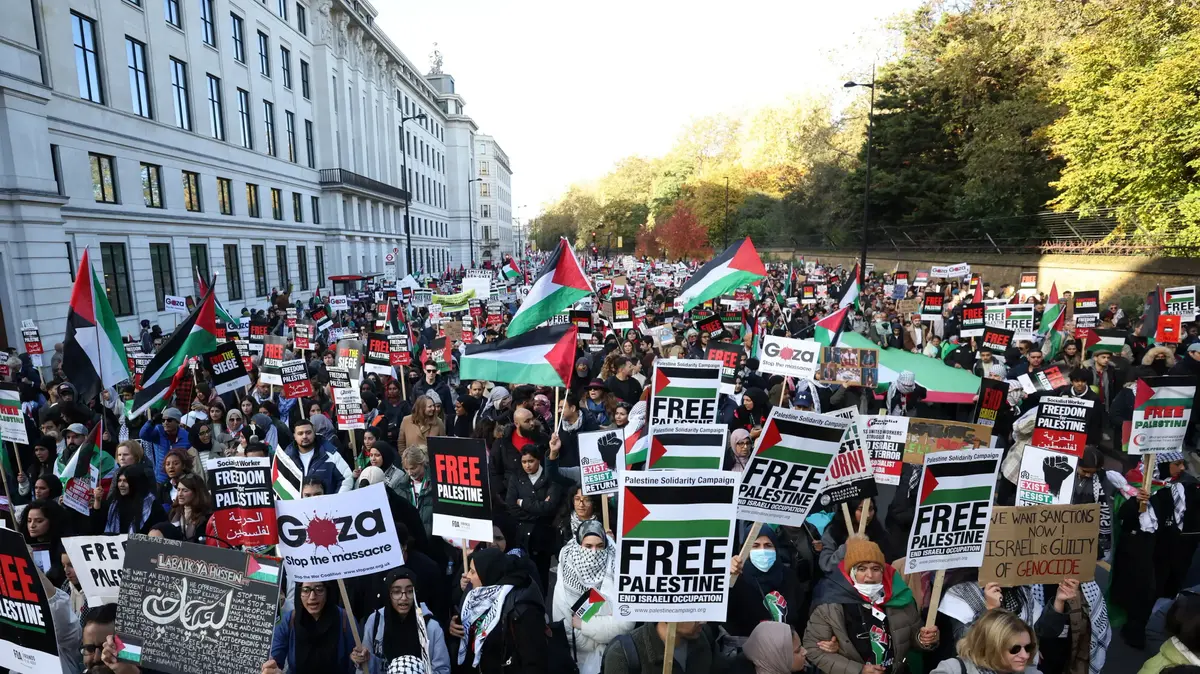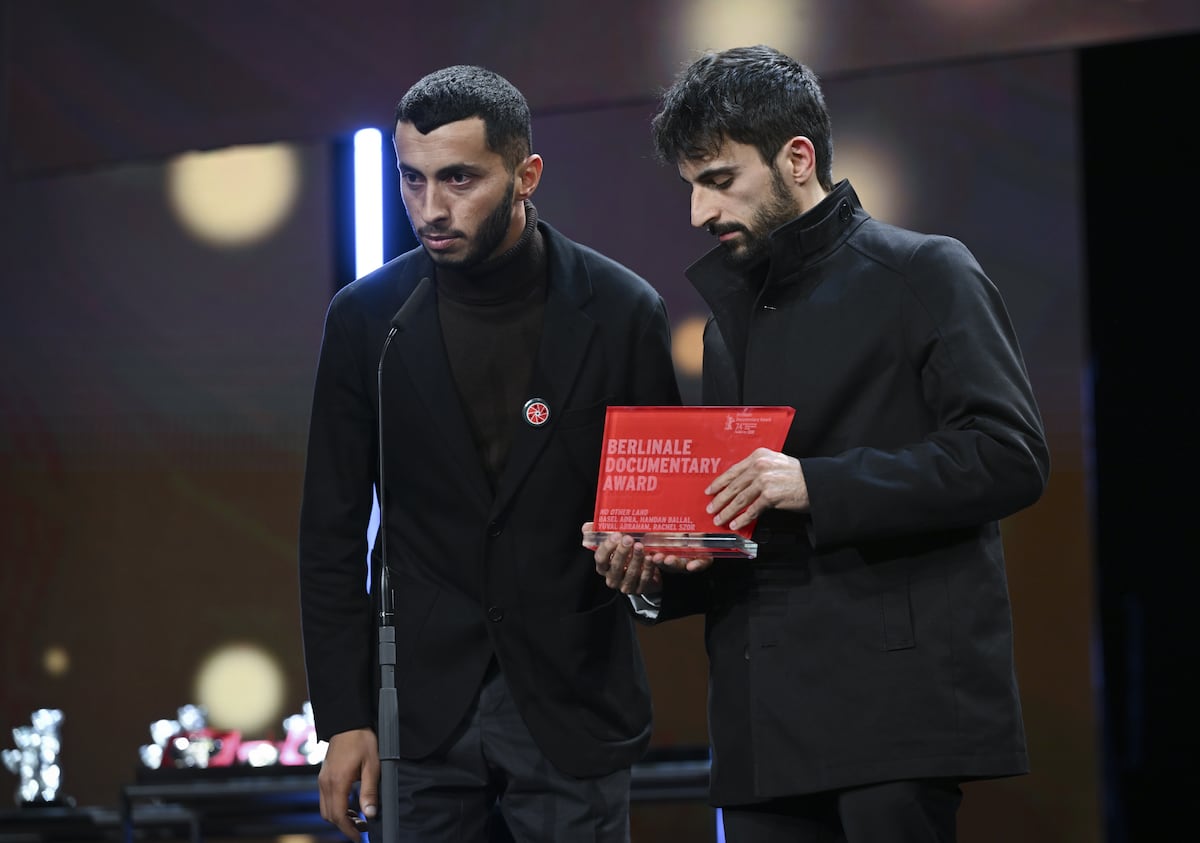The artist should kindly make art and not politics, that is a typically German attitude for author Max Czollek - not only in the anti-Semitic debate about the pianist Igor Levit.
Max Czollek sees the anti-Semitic debate about the pianist Igor Levit in an unfortunate German tradition.
Talking about discrimination in other countries seems to be easier than talking about right-wing violence in your own country, says the author.
According to Czollek, artists have to see themselves as citizens even more.
In the end, the columnist had to fix it.
Carolin Emcke found clear, compassionate, reflective words for Igor Levit in the “Süddeutsche Zeitung”, who had been denigrated in the same medium with a convoluted, anti-Semitic criticism (see below).
It was not the first time, for weeks the pianist, who defines himself not only by his art but also by his attitude, has been exposed to humiliation.
Not an isolated case and typically German, as the Jewish author Max Czollek finds.
+
Max Czollek is a poet and political essayist.
Most recently, his polemic "Contemporary Coping" appeared.
© Konstantin Boerner
How should an artist behave in German society?
Czollek:
Obviously one
resents
the artist for not only expressing himself about art.
In the case of Levite, however, one must distinguish between two things.
One aspect is the very German, post-1945 invention of a culture that is free from any reference to society and that should be kept free from social criticism in this way.
I find something like that highly unreal: the invention of a “good culture” as a benchmark for a German society as a contrast to “bad politics”, which is believed to have been overcome.
And that's why a politically committed artist like Levit is considered suspect.
The other aspect concerns the very specific role that Jewish artists had and have to play in post-war society.
Jewish art provides a kind of fuel for the German need for reparation.
Igor Levit bothers me.
It should actually convey a sense of well-being to the German side and not give the angry, bad Jews.
There is another Jewish pianist, Daniel Barenboim, who has been socially critical for decades. Isn't he chalked up because the issue is foreign policy and he's not “polluting” Germany?
Czollek:
That's exactly the point!
Anyone who strives for reconciliation in the Palestine conflict is warmly welcome.
You would never accuse him of making a politicized art.
But someone like Igor Levit, who takes action against anti-Semitic hostility and takes a clear position against a German right-wing, is suspect.
It's not a coincidence.
And even if we look at the German reactions to “Black Lives matter”, it actually seems to be easier to think about the discrimination against others than about the reality of right-wing violence in Germany.
You just have to imagine what this permanent racist, anti-Semitic and inflammatory pressure means for people, whether in public or in private.
And then Levite is also reproached for his resistance.
The vocabulary "victim claim ideology" in the "Süddeutsche Zeitung" or a few weeks earlier the complaint in "Mannheimer Morgen" that one should no longer even make a "Jewish joke" and not distinguish between "Jewish jokes": these are statements that happen to the authors ? A mistake? Or how aware is this?
Czollek:
The interesting
thing
is that after 1945 a consensus was found in Germany that everyone can agree to: We are no longer Nazis!
This consensus has become so much a part of one's self-image that even the anti-Semites believe that they have nothing to do with Nazism any more.
In such a situation, the ritual assurance that it was not meant as the “SZ” editorial team in the case of Levit was not helpful.
Nobody has ever meant it that way - so what is the excuse then, if it doesn't mean that you finally get to the structures that lie behind it and make such thinking possible in the first place?
Are you surprised by this everyday anti-Semitism in the features section?
Czollek:
He was never gone!
Take the caricature by Burkhard Mohr in the “SZ”, when a data octopus was shown with the face of Mark Zuckerberg, which looks like an anti-Jewish inflammatory drawing.
Or the caricature by Dieter Hanitzsch.
Or the peculiar use of a picture by Ernst Krahl in the context of two books on Israel.
Everything in the "Süddeutsche Zeitung".
Isn't that the same phenomenon as in connection with right-wing terrorist attacks, where only "individual cases" are spoken of?
One does not want to talk about discriminatory structures in a row.
And it is perhaps no coincidence that this is a liberal newspaper that cannot even imagine being in the flow of German history itself.
But that's exactly how it looks.
Do writers like you have it easier than musicians who you would like to have on stage just playing and singing?
Czollek:
Maybe it's easier for me as a political essayist.
As a poet, on the other hand, I am in a comparably more difficult situation.
Poetry related to society is disreputable, in the best case one says something like: It is political poetry, but it is also well done.
At this point I would also like to refer to the second aspect, as at the beginning: that the Jewish side is constantly being asked about anti-Semitism.
And that's happening right here, in this conversation.
For me it's actually about something completely different: namely, a different understanding of art in which the artist reflects as part of society.
And I think that something is just starting to move, something that started in the theater: a greater awareness of the position of artists and the emerging thought that art is simply not “innocent”.
So are the artists still too quiet?
Czollek:
Definitely not Levit!
I just hope the rest of the guild isn't late.
Since the rise of Pegida and the AfD, which is pushing with power into cultural politics and actively trying to prevent the funding of artistic spaces, the question has been even more central: Do we artists react as citizens?
Or are there also genuinely artistic means of defense?
To this end, I have been developing the concept of “defensive poetry” for some time with the writer Jo Frank.
And I think that this will open up completely different areas of resistance that go beyond the political arena.
So I would reply to the critics of Igor Levit: None of this goes far enough!
Basically, this is all about the makeup of a community and who it tolerates. In your book you address how German society reacts to the corona restrictions, whom it intends to protect with - and who not. Has this changed in the past few months?
Czollek:
The term I use is “limited solidarity”.
A current example is the question: Who is actually responsible for the increasing number of cases?
We have a Berlin district like Neukölln, which was at the top of German statistics for a long time.
And the social discourse revolved around it: This is due to the young people, to the clans who live in large families, where it is cramped and dirty and which cannot be controlled.
All prejudices about migrants, Muslims and a lower class became visible in these attributions.
And then suddenly Berchtesgaden becomes the number one hotspot.
A wealthy area.
And there is: silence.
And this silence is of course also an expression of who deserves solidarity and who tends to be held responsible for one's own misfortune.
They propagate a “Jewish-Muslim leading culture” as a way out. Especially in Bavaria the alarm bells are likely to ring.
Czollek: That's
good.
Whoever shouts “ouch” first has lost.
The Jewish-Muslim dominant culture is not a utopia, but something that is already a reality today.
Society has changed.
And already today there are concepts and perspectives in culture and civil society that can depict and think about this radical diversity of society.
What can't keep up are the political concepts.
They continue to work with the assumption that a society needs a center and a dominant culture for it to function.
They continue to claim that the greatest danger to a society is its diversity.
The days of the Jewish-Muslim dominant culture are directed against this idea.
Because diversity is not the greatest threat to plural democracy.
But their basis, which is also the basis of their ability to defend themselves.
Is a debate like the one about Igor Levit a kind of birth pangs on the way to this different social consciousness?
Czollek:
The matter has not yet been decided.
100 years ago German society was already on the way to greater pluralization.
We saw what became of it.
At that time, the völkisch homogenizers destroyed the first German democracy with recourse to a completely unreal concept of ethnic purity and ethnic homogeneity.
Many also Jewish people could not believe what was in store for them at the time, because this Nazi ideology seemed so absurd and silly.
We shouldn't be so naive a second time.
And that's why we have to make every effort to ensure that things turn out better this time.
The interview was conducted by Markus Thiel.
Max Czollek, born in 1987, is a poet and political essayist. Most recently, he published his pamphlet “Gegenwartsbewältigung” (Hanser, 20 euros). He curates the “Days of the Jewish-Muslim Leading Culture”, which last until November 9th and take place in several German cities.






/cloudfront-eu-central-1.images.arcpublishing.com/prisa/ZBRP3A2U4BGYHDS3IA4RYAB65Q.jpg)








